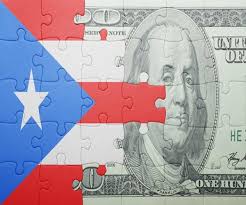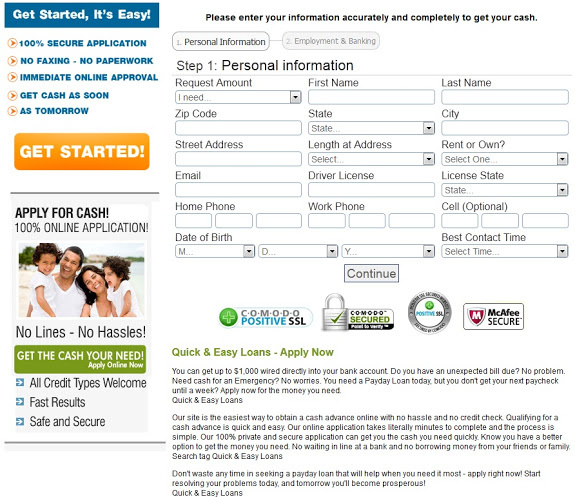Best Top Tier Banking Licenses
I usually write about mid-tier or lower-tier international banking licenses. In the middle of the market, we have the US territory of Puerto Rico with Bermuda coming up fast. In this post, I’ll look at the top-tier banking jurisdictions.
If you enjoy the following article, you might also like to review the differences between Puerto Rico international banking license and a US banking license. See US Banking License vs. Puerto Rico International Banking License and Process to Apply for a US Banking License.
Introduction to the Best Top Tier Banking Licenses
There are many factors to consider when choosing the best jurisdiction to set up a new international bank. Some of the most important factors include:
- Regulatory environment: The regulatory environment in the jurisdiction should be stable and predictable. The bank should also be subject to the same regulations as other banks in the jurisdiction.
- Taxation: The tax laws in the jurisdiction should be favorable to banks. The bank should also be able to take advantage of any tax breaks or incentives that are available.
- Infrastructure: The jurisdiction should have a strong financial infrastructure. This includes a well-developed banking system, a reliable telecommunications network, and a stable political environment.
- Cost of doing business: The cost of doing business in the jurisdiction should be reasonable. This includes the cost of setting up the bank, the cost of operating the bank, and the cost of complying with regulations.
Some of the best jurisdictions to set up a new international bank include:
- United Kingdom: The UK has a stable regulatory environment, favorable tax laws, and a strong financial infrastructure. The cost of doing business in the UK is also reasonable.
- United States: The US has a large and sophisticated financial market. The US also has a strong regulatory environment and favorable tax laws. However, the cost of doing business in the US can be high.
- Singapore: Singapore has a stable regulatory environment, favorable tax laws, and a strong financial infrastructure. The cost of doing business in Singapore is also reasonable.
- Hong Kong: Hong Kong has a stable regulatory environment, favorable tax laws, and a strong financial infrastructure. The cost of doing business in Hong Kong is also reasonable.
- Switzerland: Switzerland has a stable regulatory environment, favorable tax laws, and a strong financial infrastructure. However, the cost of doing business in Switzerland can be high.
Ultimately, the best jurisdiction to set up a new international bank will depend on the specific needs of the bank. The bank should carefully consider all of the factors listed above before making a decision.
In addition to the factors listed above, there are a few other things to consider when choosing a jurisdiction to set up a new international bank. These include:
- The bank’s target market: The bank should choose a jurisdiction that is attractive to its target market. For example, if the bank is targeting high-net-worth individuals, it may want to set up in a jurisdiction with a favorable tax regime.
- The bank’s business model: The bank’s business model will also affect its choice of jurisdiction. For example, if the bank is planning to offer a wide range of financial products and services, it may want to set up in a jurisdiction with a well-developed financial infrastructure.
- The bank’s risk appetite: The bank’s risk appetite will also affect its choice of jurisdiction. For example, if the bank is willing to take on more risk, it may want to set up in a jurisdiction with a less regulated financial system.
By carefully considering all of the factors listed above, banks can choose the best jurisdiction to set up a new international bank.
Detailed Review
When setting up a new international bank, choosing the right jurisdiction can be a daunting task. The decision involves a complex balance of regulatory environments, political stability, economic strength, tax benefits, and market opportunities. This article will explore some of the most favorable jurisdictions for establishing an international bank, based on these criteria.
1. Switzerland
Switzerland has long been known as a global banking center due to its robust financial regulations, political stability, and strong privacy laws. These factors make it an attractive jurisdiction for setting up a new international bank. Swiss banking regulations are stringent, ensuring a high level of trust and integrity within the banking system. Despite recent changes towards more transparency, Switzerland still provides a high level of confidentiality for its banking clients.
Switzerland is known for having a highly-regulated banking system, with strict capital requirements that must be met before a bank can begin operations. To start a bank in Switzerland, an applicant is required to follow the regulations laid out by the Swiss Financial Market Supervisory Authority (FINMA).
One important aspect of this regulatory framework is capital adequacy, which refers to the amount of capital a bank must hold in order to conduct business without encountering financial difficulties. Swiss banks are required to maintain a minimum capital ratio of 8% of risk-weighted assets, which is one of the highest ratios in the world. This means that a bank must have at least CHF 20 million (approx. USD $22,300,000 million) in capital to start operating in Switzerland.
The required amount of capital can vary depending on the size and complexity of the bank, as well as the types of products and services it offers. Some banks may also be subject to additional capital requirements if they engage in riskier activities, such as investing in securities or engaging in foreign currency transactions. In addition, a bank’s capital requirements may be adjusted over time based on changes in its risk profile or other market conditions. Overall, the high capital requirements in Switzerland reflect the country’s commitment to maintaining a stable and secure banking system.
2. Singapore
Singapore’s strategic location, coupled with its well-regulated banking industry, makes it a compelling choice for banking institutions. The country’s political stability, coupled with a strong and resilient economy, makes it an attractive destination for new banking ventures. Singapore’s banking sector is characterized by a strong regulatory framework, which has helped it maintain its reputation as a safe and secure place for banking activities.
3. Luxembourg
Luxembourg has emerged as a significant player in the international banking scene, thanks to its strong regulatory regime and attractive tax laws. The country has a favorable business environment, characterized by political stability, a strong economy, and a strategic location in the heart of Europe. Luxembourg is particularly attractive for banking institutions that are interested in investment banking and wealth management.
4. Hong Kong
Hong Kong’s strong financial services sector, strategic location, and robust regulatory regime make it another top choice for establishing a new international bank. The region serves as a gateway to the lucrative Chinese market and other Asian economies, providing vast market opportunities.
5. Cayman Islands
The Cayman Islands are known for their favorable tax regime, with no direct taxation on banking institutions. They offer a stable political environment and a strong legal framework based on English common law. The jurisdiction has a robust regulatory framework for its banking sector, ensuring financial stability and integrity. The Cayman Islands are a particularly popular choice for banks looking to cater to international clients and offshore businesses.
The Process of Applying for a Top-Tier Banking License
Please note that this is a generalized guide and the specific requirements and processes can vary significantly based on the jurisdiction and regulatory authority. Please contact us for a quote and additional information at info@premieroffshore.com. .
Applying for a banking license is a complex and rigorous process, requiring detailed planning, preparation, and documentation. This article will outline the general steps involved in obtaining a banking license, with emphasis on the need for a detailed business plan and financial model, proof of funds, and background reports for all investors, officers, and directors. Please note that the process can vary based on jurisdiction and specific regulations of the banking authority in question.
1. Preparing a Detailed Business Plan and Financial Model
A comprehensive business plan is a fundamental part of the banking license application. This document should outline the strategic direction of the bank, the types of services to be offered, the target market, and the proposed operational structure. Key aspects to include are:
- Mission and Vision: Define the purpose of the bank and its future aspirations.
- Products and Services: Detail the specific banking products and services the institution plans to offer.
- Market Analysis: Provide a thorough analysis of the target market and competitive landscape.
- Operational Plan: Describe how the bank will function operationally, including the technology and infrastructure to be used.
- Management and Organizational Structure: Detail the proposed organizational hierarchy, roles, and responsibilities.
A robust financial model accompanies the business plan. This model should forecast the bank’s financial performance for at least the next three to five years, taking into account various scenarios and risk factors. It typically includes projected income statements, balance sheets, cash flow statements, and key financial ratios.
2. Proof of Funds
Applicants must demonstrate that they have sufficient capital to establish and operate the bank. This involves providing proof of funds, typically in the form of bank statements or other verifiable documents. The minimum capital requirement varies depending on the jurisdiction and type of banking license.
3. Background Checks
Regulatory authorities require comprehensive background checks for all investors, officers, and directors involved in the proposed bank. These checks aim to ensure that the individuals have a clean record, are of good character, and have the necessary qualifications and experience. The checks typically involve:
- Criminal Background Checks: To ensure the individuals have no criminal history.
- Credit Checks: To verify the financial integrity of the individuals.
- Qualifications and Experience Checks: To confirm that the individuals have the necessary skills, qualifications, and experience to effectively manage a banking institution.
4. Application Submission
Once the business plan, financial model, proof of funds, and background checks are complete, the banking license application can be compiled and submitted to the relevant regulatory authority. The application will also need to include other documents, such as incorporation documents, internal policies, and procedures.
5. Review and Approval
Following submission, the regulatory authority will review the application, which could involve further inquiries or requests for additional information. If the authority is satisfied with the application, they will grant the banking license. This process can take several months to over a year, depending on the jurisdiction and the complexity of the application.
Obtaining a banking license is a rigorous process, requiring meticulous preparation and due diligence. It’s essential to seek expert advice and assistance throughout the process to ensure that all requirements are met and the application is as robust as possible. While the process may be time-consuming and challenging, it’s a crucial step toward establishing a successful banking institution.
Conclusion
The choice of jurisdiction for setting up a new international bank depends heavily on the specific needs and strategy of the banking institution. Other factors such as the target market, the nature of banking services to be offered, and the bank’s risk tolerance also play a role. The jurisdictions mentioned above offer a blend of regulatory stability, market opportunities, and favorable business environments, making them top choices for establishing a new international bank.
I hope the following has been helpful. For a detailed quote and information specific to a particular jurisdiction, please contact us at info@premieroffshore.com











